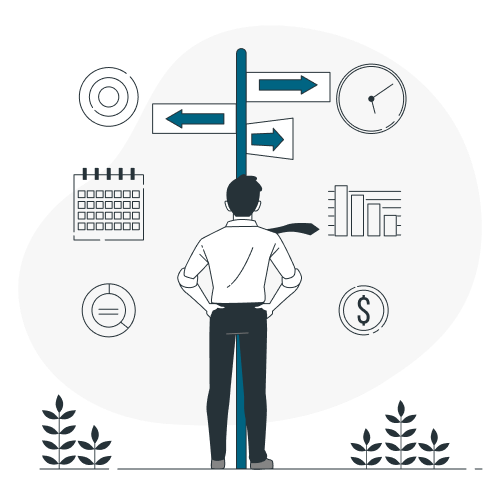Enterprise Resource Planning (ERP) System
Say goodbye to manual processes and hello to automation with our intuitive ERP platform, designed to optimize workflows and boost productivity
What Is an Enterprise Resource Planning System?
Type of software used by organizations to manage their daily activities while supporting automation and other processes. From managing finances to handling supply chain and procurement, it’s your all-in-one tool for efficiency and success. ERP acts as the ultimate multitasker which manages all the vital operations needed to run a company. It serves as the integrated system that acts as the organization’s system of record. ERP software links interconnected business applications, sharing a single database and reducing the resources needed for comprehensive end-to-end business operations. All of a company’s important data should be stored in the ERP system, so everyone has the same accurate information, making it the go-to place for everything about the business.
Improving Operational Effectiveness


Data Insights
Simplify Global Business Expansion

Your All-in-One Solution
Provides over 1000 objects to support every aspect of your business

Enhanced Efficiency

Improved Collaboration
With centralized data & communication tools, ERP fosters collaboration among different departments, leading to better coordination.

Financial Accounting
Gain instant insight into your cash flow with real-time visibility. Utilize a robust accounting module that comprehensively addresses all bookkeeping needs.

Cost Reduction
By eliminating redundant processes and optimizing resource utilization, ERP helps in reducing operational costs and improving the bottom line.

CRM
Maximize customer acquisition and retention by streamlining the sales process with CRM. Easily manage leads, opportunities, and generate quotes anytime, anywhere.

Real Time Insights

Standardized Processes

HR & Payroll

Asset Management
Frequently Asking Question’s ( FAQ’s)
find helpful information and solutions to your queries.
ERP streamlines operations, enhances efficiency, improves collaboration, provides real-time insights, and supports strategic decision-making, ultimately leading to increased productivity and profitability.
Common modules include finance/accounting, human resources, inventory management, procurement, sales and marketing, manufacturing, and customer relationship management (CRM).
